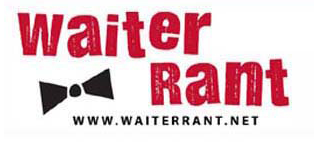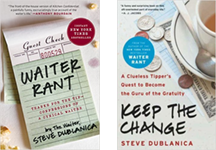After my wife got her second dose of the Pfizer vaccine on Saturday, she told me, “I’m starting to feel like shit. You’ll have to take Natalie horseback riding tomorrow.”
“No problem,” I said.
“Have you ever ridden a horse?”
I had to think about that for a minute. “Not since I was at YMCA camp,” I said, after a long pause. “Forty something years ago.”
I wasn’t going to be riding any horses, however. My daughter’s Daisy troop had organized a field trip to a local stable and I was going as a substitute chaperone. Fact is, I’m a little frightened of horses. The last time I was near one at a county fair, I was intimidated by its massive size and power. “If he wants to stomp me to bits,” I thought, ‘There’d be nothing I could do about it.”
After making sure Natalie had her cowboy boots on, a full water bottle and an overly thick application of sunscreen, we got in the car to make the short trip to the stable. “Are you excited?” I asked her. “Uh huh,” she said, rather unenthusiastically.
“Don’t worry, it’ll be fun. Horses are very nice. Just watch out for the poop.”
Pulling into the parking lot, I spied a gaggle of small girls wearing their Daisy vests by the main gate. As we walked toward them under the hot sun, I began to worry that Natalie would be intimidated by horses like me and, if I was nervous, she’d get nervous. “Cowboy up,” I thought. “You’ve got this.” I needed have worried, however. The moment she saw a pony near the gate, her first reaction was to walk up to it and stroke its forehead. “That’s a pony,” Natalie said, looking at me over her shoulder. “Not a horse.”
“What’s a mule then?’
“Oh Daddy. You don’t know anything.”
A young woman wearing jodhpurs and scuffed riding boots came and introduced herself, organized the little girls into a line, and then took them into the stables to feed the horses. “Remember ladies,” she said, “Never get behind a horse. That makes them nervous because they can’t see what’s going on behind them. Always approach them from the front. Now who wants to go first?”
Natalie, who always whines when asked to do chores or retrieve her heavy bookbag out of the car, was the first to raise her hand. Grinning, I watched her dig her scoop into a pile of grain, pull out a heavy load that she needed two hands to carry, and then fearlessly trot go into a horse’s pen. As the guide held its bridle, Natalie brushed against the horse, laughing as she dumped the equine’s dinner into a bucket.
As the girls each took their turn, I looked at the horses on the other side of the stable – much bigger than the ones the Daisy Scouts were feeding. A large brown one caught my eye and then, as if she knew I was staring at her, (Or him. I couldn’t tell.) she raised her great head and returned the gaze. Lost in her big chocolate eyes, a curious feeling of unreality settled over me and the world, with all its cares and troubles, disappeared.
“Daddy,” I heard my daughter say, her voice sounding very far away. “Look.”
Spell broken, I turned away and saw another horse licking grains out of my daughter’s cupped hands with its large tounge. “It’s tickles,” Natalie said, laughing. Personally, I’d be leery of doing such a thing, but there was my little girl, doing something her father could not. It wouldn’t be the first time – nor the last.
Then it came time to go for a ride. After being fitted with helmets, we sauntered over to the enclosure where the guide stood each girl next to a horse, placed the reins in their right hands and, to my consternation, asked the parents to hold the bridle. Faking confidence, I slipped my hand into the ring near the horse’s nose and muttered, “Nice horsey.” The horse, however, was quite placid and ran its tounge over its lips, as if saying, “Another day, another kid.” With the aid of several staff, the guide got the girls into their saddles and, after the parents moved away, began trotting the horses around the ring. One of the Daisies started crying. Oh well, there’s always one. Then I took out my phone and started to take the obligatory pictures.
Natalie was quite at ease on her mount; standing on her stirrups, leaning forward and holding the reins with what I thought was good form for a first timer. Then, as her laughter carried across the warm spring air, I was suddenly very glad I’d taken my wife’s place. Moments like these are precious and we never know how many of them we’re going to get. “This is the good stuff,” I said to myself. “This is what makes everything worth it.” When her ride was over and we were walking away from the paddock, Natalie stopped and asked me to take off her helmet. Then, as I fumbled with the buckle, she began to cry. “What happened?” I asked.
“You pinched me,” Natalie said, rubbing her neck.
“I’m sorry, honey.” But when I stooped down to survey the damage, there wasn’t a mark on her.
“Hey,” I said. “You’re okay. Not even a scratch.” But Natalie was looking at the horses, her tears now turning into wails. My daughter has a tendency to be a bit somatic, often using distress over a minor or fictious physical concern to express deeper emotions, so I knew what was happening. Picking her up, I kissed her cheek and whispered into her ear. “Don’t worry Natalie,” I said. “We can come back here again one day. There will always be horses for you to ride.” Her response was to blow snot on my shirt.
‘C’mon,” I said, carrying her back to the stables. “There’s more to see.”
“Everything all right?” the guide asked me.
“Just upset the show’s over.”
An hour later, the field trip ended. While Natalie was busy wrapping things up with her troop, I walked up to the big horse I saw earlier. Reaching out slowly, I stroked her neck and looked into her beautiful eyes; letting that peaceful unreal feeling wash over me again. It was the same feeling I experienced when encountering that deer in the forest long ago. Thaumazein. Wonder at the sheer existence of things. For a moment, I was a child again.
A while back, I read an article about horses being used to aid cancer patients in their recovery; something about stress relief and endorphin flow boosting the healing response – I can’t remember exactly. But as I stood in the presence of that majestic animal, I knew the wonder she evoked might also provide comfort those who could not be healed, those patients facing death. That queer sensation we get when wonder strikes us, when “the familiar becomes infinitely strange” is a reminder that nothing – neither horses, my daughter or even a beautiful spring day – can account for their own existence, leaving us to marvel as to why anything is here at all.
Far from being an “unreal” feeling, it is a revelation that reality is far greater than we imagine and that, in the end, we are sustained by something far bigger than ourselves. You can call that “something” God, Brahman or, as George Carlin joked, “The Big Electron.” But even when we are at our lowest ebb, even on our deathbeds, we get reminders that wonders, like seeing a horse in hospice, never cease. The Big Electron just keeps on giving, whether we deserve it or not, again, and again and again. And in our delight, we all become children again – a time when seemingly infinite possibility lay before us. Kids always want something to look forward too. When facing the end, wonder can return to us to that state of innocent expectation, the hope that there will always be more to see; that we haven’t arrived at the end of our lives, but only the beginning.
Patting the horse, I told it, “I shouldn’t have been afraid.” Then I rejoined my daughter and drove her home, contentedly listening as she babbled excitedly about horses. As I guided my car along the highway, I thought about Natalie crying. Perhaps those horses also stuck her as wonderous and she didn’t want the moment to end. Children are like that. But, in time, I hope Natalie will realize that Wonder will always be there for her and that the “good stuff,” despite life’s struggles, never ends. There will always be horses.
And and much, much more.


Wonderful illustration “It really is the little things that make life special”
Beautiful Steve, absolutely beautiful. Half a world away, I know the feeling. My daughter rode from around 6-7 to I think she was 13 when the lockdown kicked in. She seems to have lost interest now, it’s a real shame but I’m not pushy.
She’s recently developed quite the interest in climbing, and according to a couple of experienced friends she’s quite a natural. I wouldn’t know a cam from a carabiner.
I’m still more than a little nervy around horses though, or big ponies. 😄
My youngest daughter took a dance class, took a soccer class, tried some other activities, but nothing stuck. Then, when she was nine, out of the blue she said “I want to learn to ride a horse.”
We knew nothing about horses, but we found a place that gave lessons to absolute beginners. Six years later, she goes to the barn about five days a week, including a lesson with a dressage trainer. We figured out how to get access to horses without owning a horse, which is good, but it’s still an expensive and time-consuming hobby. But she found something that she loves. It’s built some good habits and a lot of character. While neither my wife nor I ride ourselves, we’ve grown to appreciate it. We’ve met some good people. At first I was apprehensive around the horses, like you, but now I boop the nose of every horse I meet.
So, be forewarned. You may have awakened something.
The unexpected arrival of one of your posts is always a blessing. Natalie is charming, brimming with enthusiasm for life. But it is your reminders that there is something abundant in life that is beyond yet embedded in our day to day that I find brings me the most peace. Thank you.